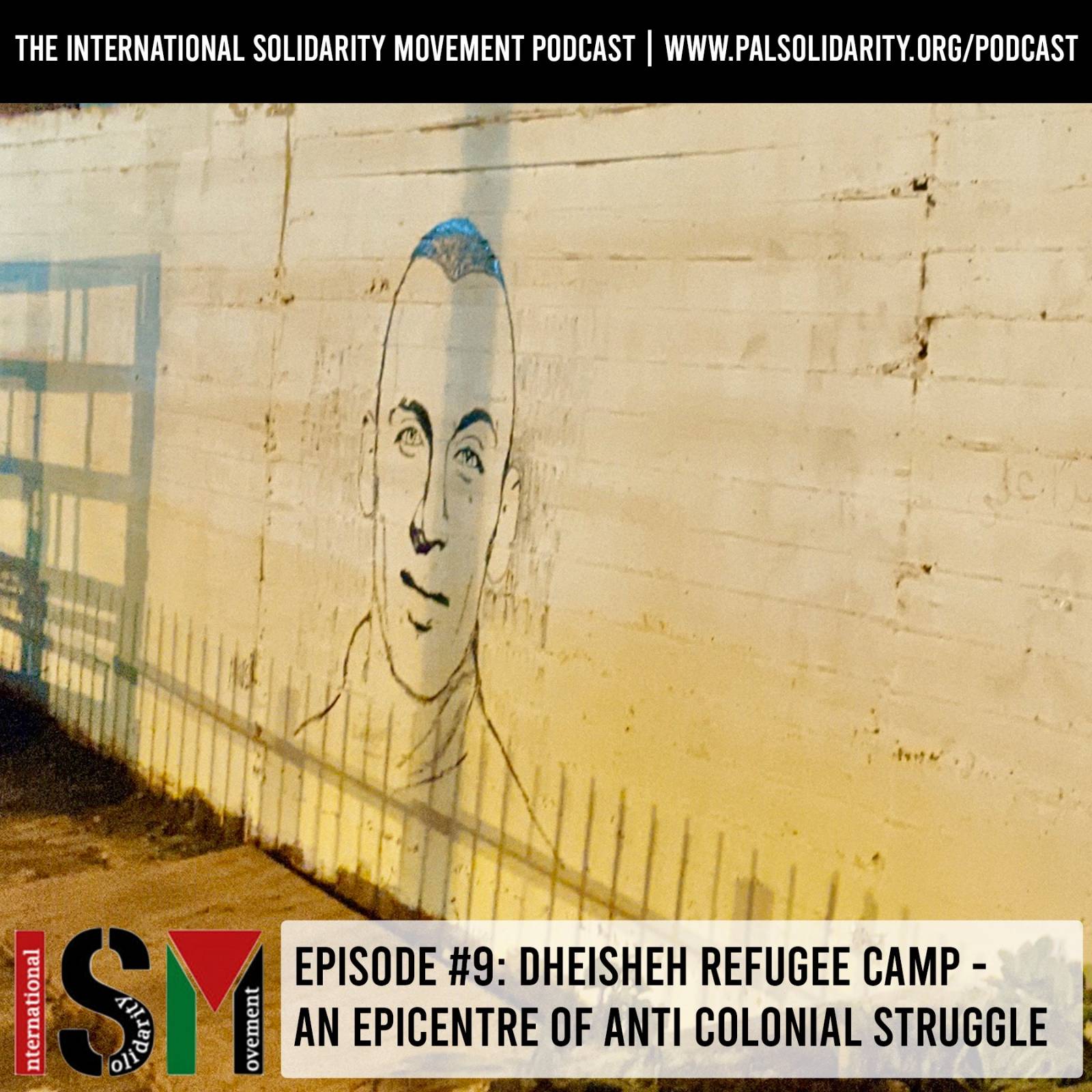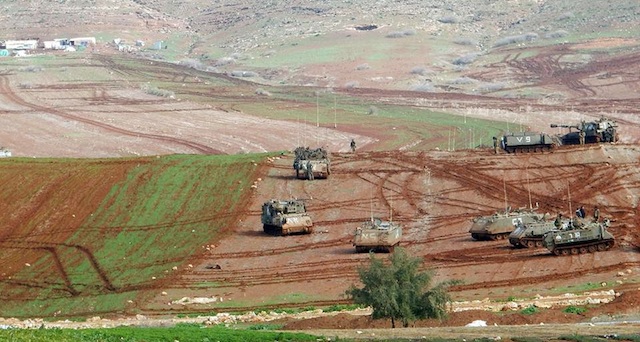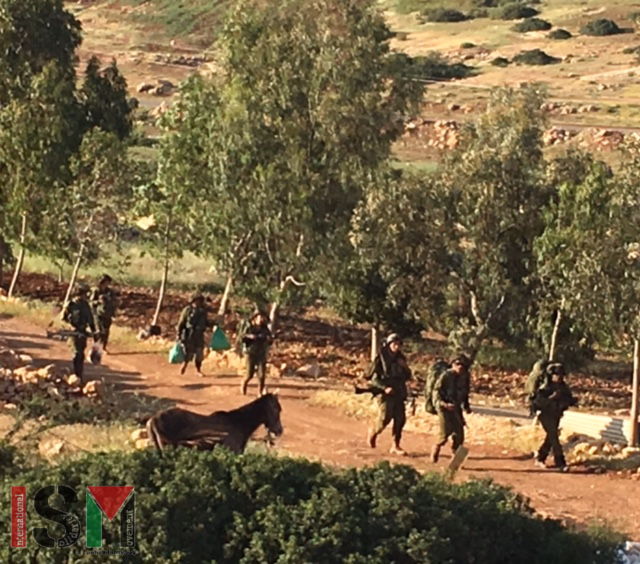Tag: Jordan Valley Solidarity
-
International Solidarity Movement Podcast episode 9: Dheisheh Refugee Camp – an epicentre of anticolonial resistance
In this episode Tom and Hazel speak to Sireen Khudairy, who is a resident of Dheisheh refugee camp in Bethlehem. For many years, Dheisheh has been a centre of determined resistance against the occupation. We spoke to Sireen in December 2022. And she told us about life and resistance in Dheisheh, and also in the…
-
Israeli Military Exercise on Palestinian farmers fields
19th December 2016 | International Solidarity Movement & Jordan Valley Solidarity| occupied Palestine At around 12:30pm December 19th, 2016, the Israeli Occupation Forces blocked the road leading to Tubas and the north of the Jordan Valley for around two hours. Dozens of Palestinians farmers and civilians had to wait for an Israeli military exercise to…
-
IOF Military Training Exercises in the Jordan Valley
4th April 2016|International Solidarity Movement | Al-Khalil Team, occupied Palestine In the north of the Jordan Valley, and adjacent to the town of Tubass, are three agricultural communities: Yarza (with 4 families), Ibzk (13 families) and Samre (11 families). These families have existed on this land for hundreds of years, and some were born in…



